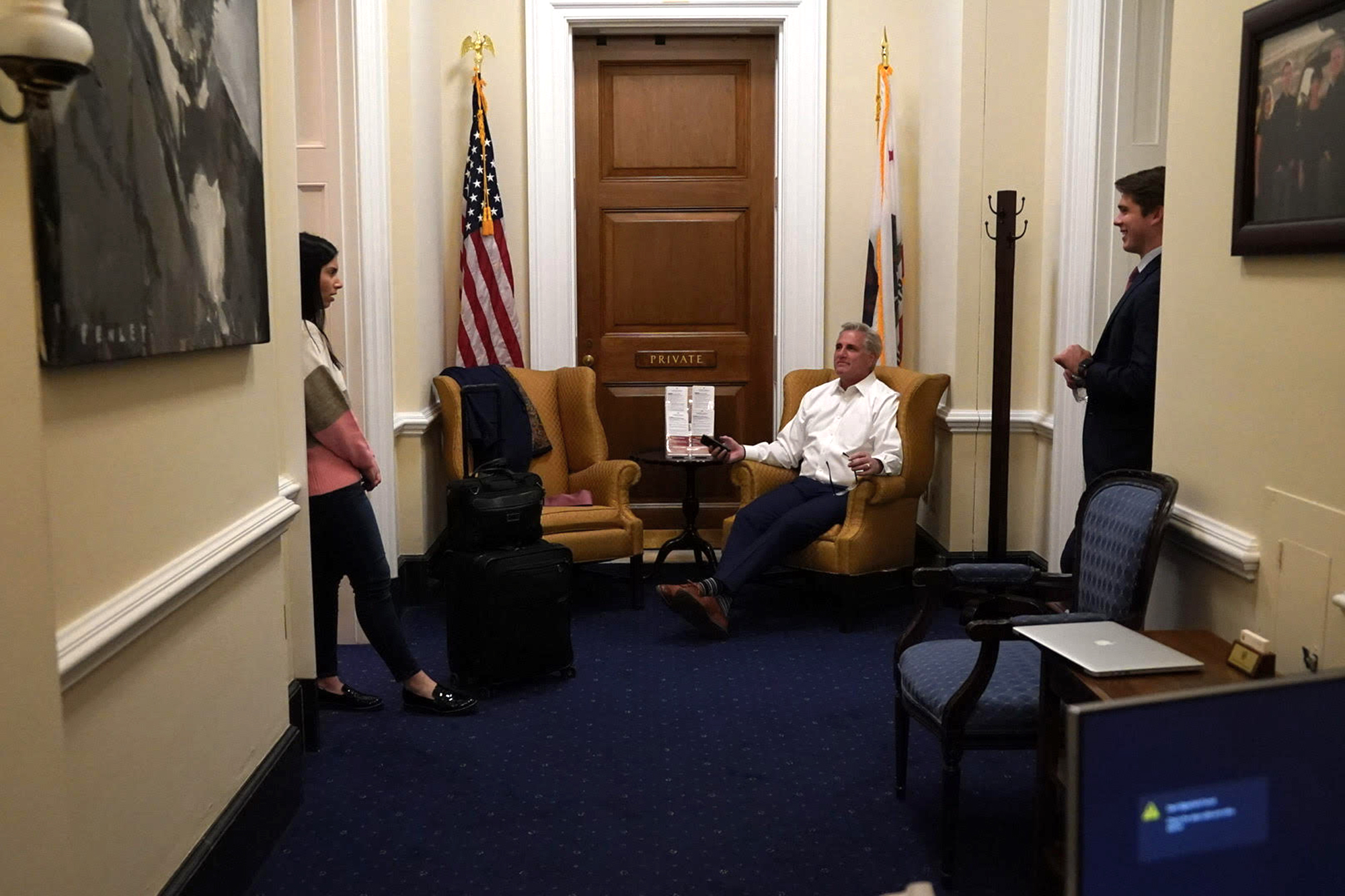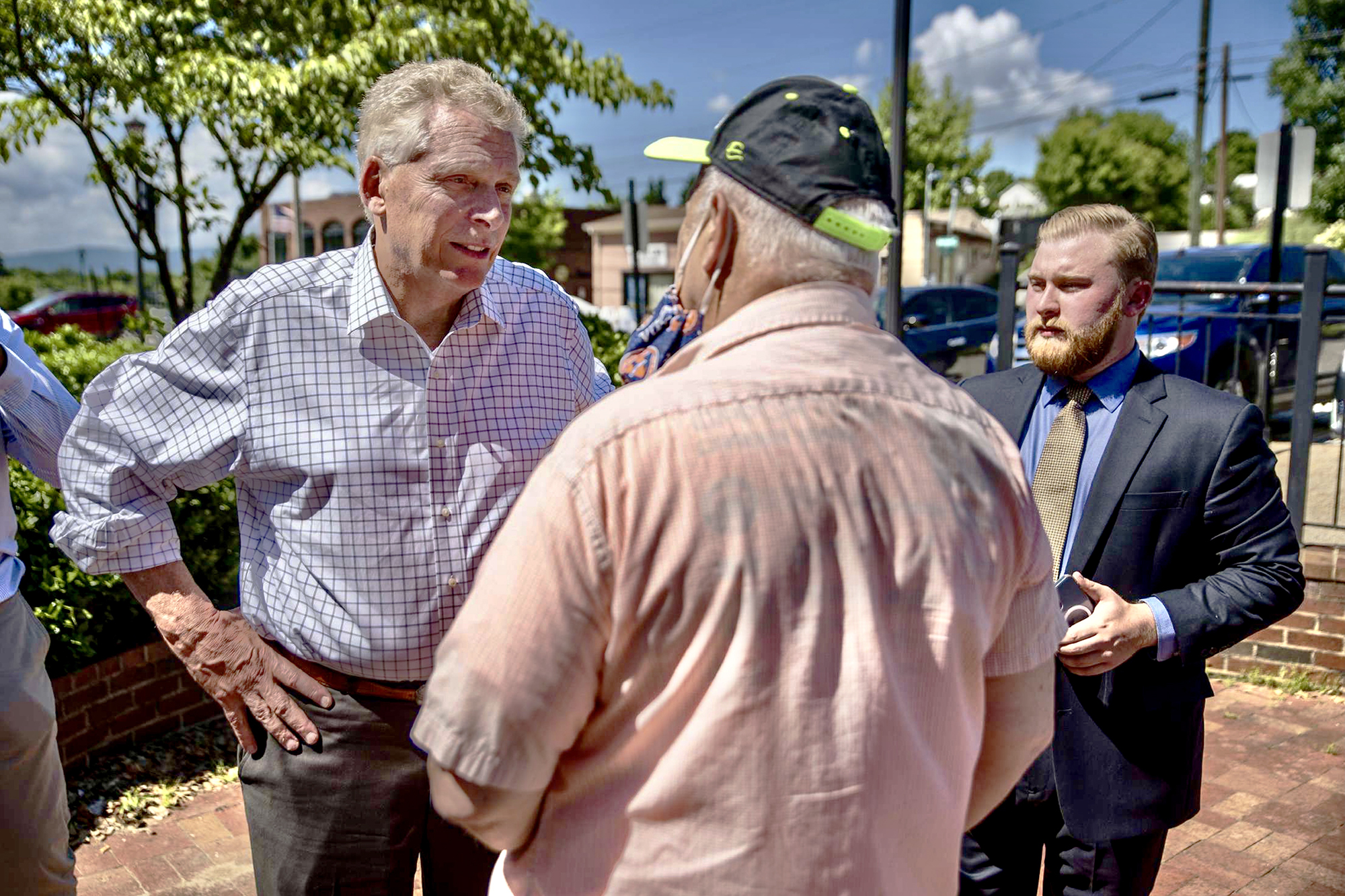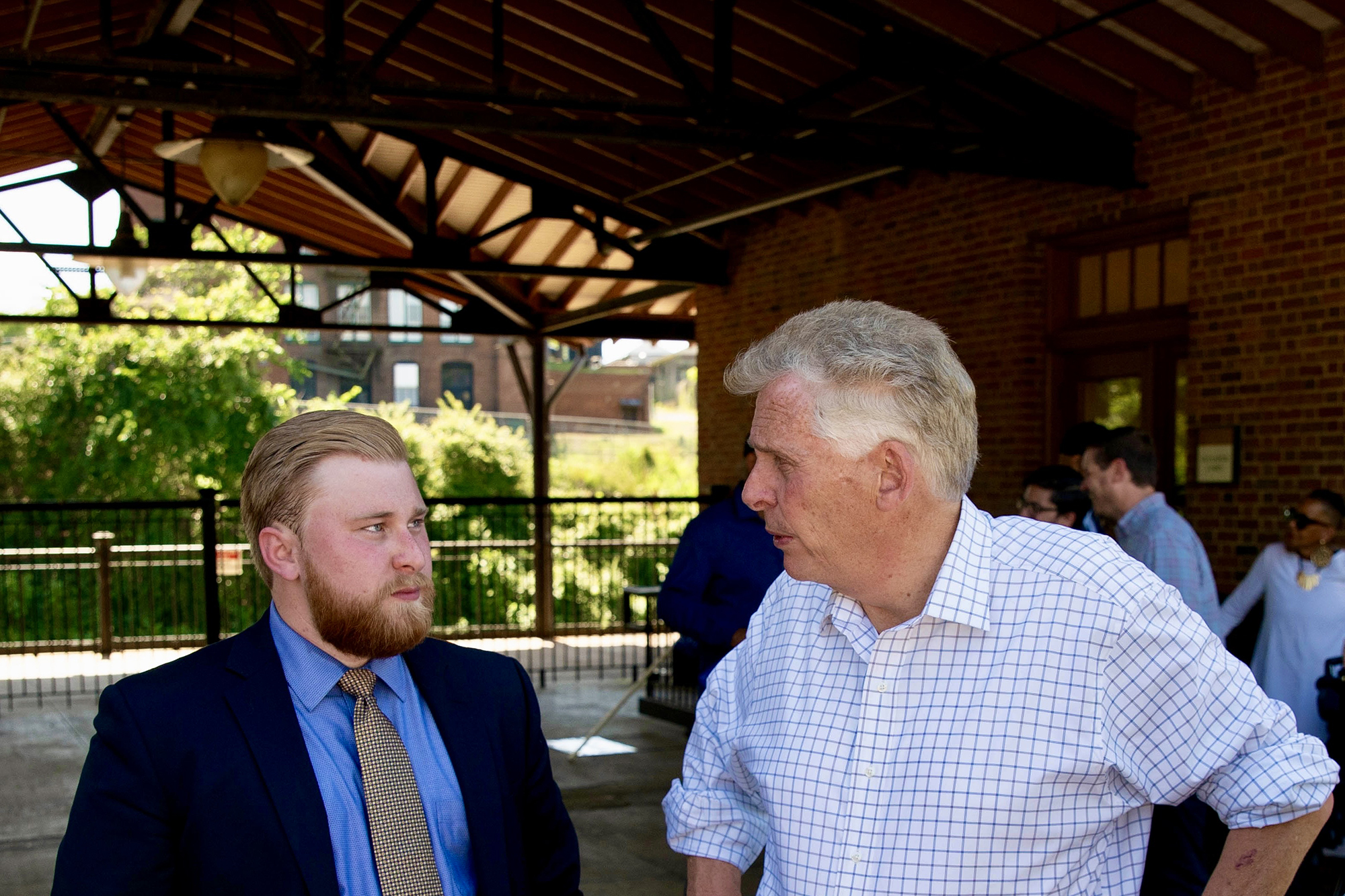
For political science students at the University of Lynchburg, working hands-on for campaigns isn’t just a valuable experience — it’s a job that can extend beyond their college years. Stephen Ruppel ʼ18 describes it as the “most exhausting job, but it is meaningful and a unique experience.”
After graduation, he joined a West Virginia senate campaign and lived in Charleston, West Virginia, for eight months. After that race ended, he joined House Minority Leader Kevin McCarthy’s (R-California) team in Washington, D.C.
Right now, his job as deputy political director for McCarthy’s team means he helps recruit, identify, and support candidates across the country, in addition to preparing for the 2022 election.
“I love the job because it allows me to travel across the country and meet incredible people. In 2.5 years, I have been to 48 of the 50 states in the U.S.,” Ruppel said.
He reflects on his Lynchburg experience almost daily, including the impact of his time on the men’s lacrosse team.
“A lot of my job consists of working with a team and working together to get the job done. Playing on the lacrosse team at Lynchburg helped teach me how to work best with a team,” Ruppel said.
His time in the classroom also shaped his career. He said he was fortunate to work with “many incredible professors while at Lynchburg.” One of them was Lorna Dawson, assistant professor of political science, who “pushed me harder than I had ever been pushed,” Ruppel said. Thanks to Dawson, he “learned what hard work in the classroom was.”
He also enjoyed great conversations with political science professor Timothy Meinke, and political science professor Daniel Lang helped Ruppel get an internship his junior year.
“I reflect on my experiences at Lynchburg every day. When people ask me about Lynchburg, I don’t talk about classes or games very often, I always tell them about the people. The people at Lynchburg are what make it such a special place,” he said.
Political science major Janae Edwards ʼ23 also chose to experience a real political campaign this past summer. She decided to join former Virginia governor Terry McAuliffe’s (D) campaign because “I identify with his values. Working for Terry McAuliffe has allowed me to grow as a student and a leader.”
With her job title as “campaign fellow,” she spent her time researching other elected officials in Virginia, making phone calls, and writing briefs for McAuliffe.
Her time so far at Lynchburg, she added, prepared her immensely for this summer job.
“Time management and self-discipline are two of the most important factors for me as a student and in this campaign,” she said. “I feel confident in my writing, prioritizing and completing work with deadlines, and being open and comfortable around new people. Working for this campaign continues to show me the importance of adaptation and being flexible with tasks that need to be completed.”
Edwards even had some time to connect with fellow alumni on the campaign trail, like Carter Elliott ’19, who added a fun dynamic to their team.
“We reflected on the courses we have both taken and how helpful they have been in our careers so far. I had such an incredible time working with the campaign these past few months. I encourage students to reach out to their professors for guidance and maintain connections with them,” Edwards said.

Elliott said he joined McAuliffe’s campaign in March for many reasons, specifically for the former governor’s commitment to investing in Virginia’s education system. While at Lynchburg and sometime after, he has worked on more than half a dozen political campaigns.
As McAuliffe’s campaign political coordinator, he meets with elected officials across the commonwealth and assists with affinity groups, particularly their veterans and military families program. He also sets up events and travels with the former governor.
“Lynchburg gave me everything I needed to excel in the real world: critical thinking, writing, and communication skills,” he said. “My professors and advisors were always so supportive of me taking these opportunities. Because of this, so many opportunities that would have been impossible at other institutions were made possible at Lynchburg.”
Because of the great opportunities Lynchburg afforded him, Elliott likes to “pay it forward” and help Lynchburg students with internships on any campaign he works for. Since graduating, he estimated he’s offered about 10 students internship opportunities through various campaigns.
“I got my first internship ever through a Lynchburg connection. I love having students from Lynchburg work with me because they are always well-prepared. Students from our University think quickly, work hard, and adapt to their surroundings very well, making them perfect for the fast-paced environment of politics,” he said.


